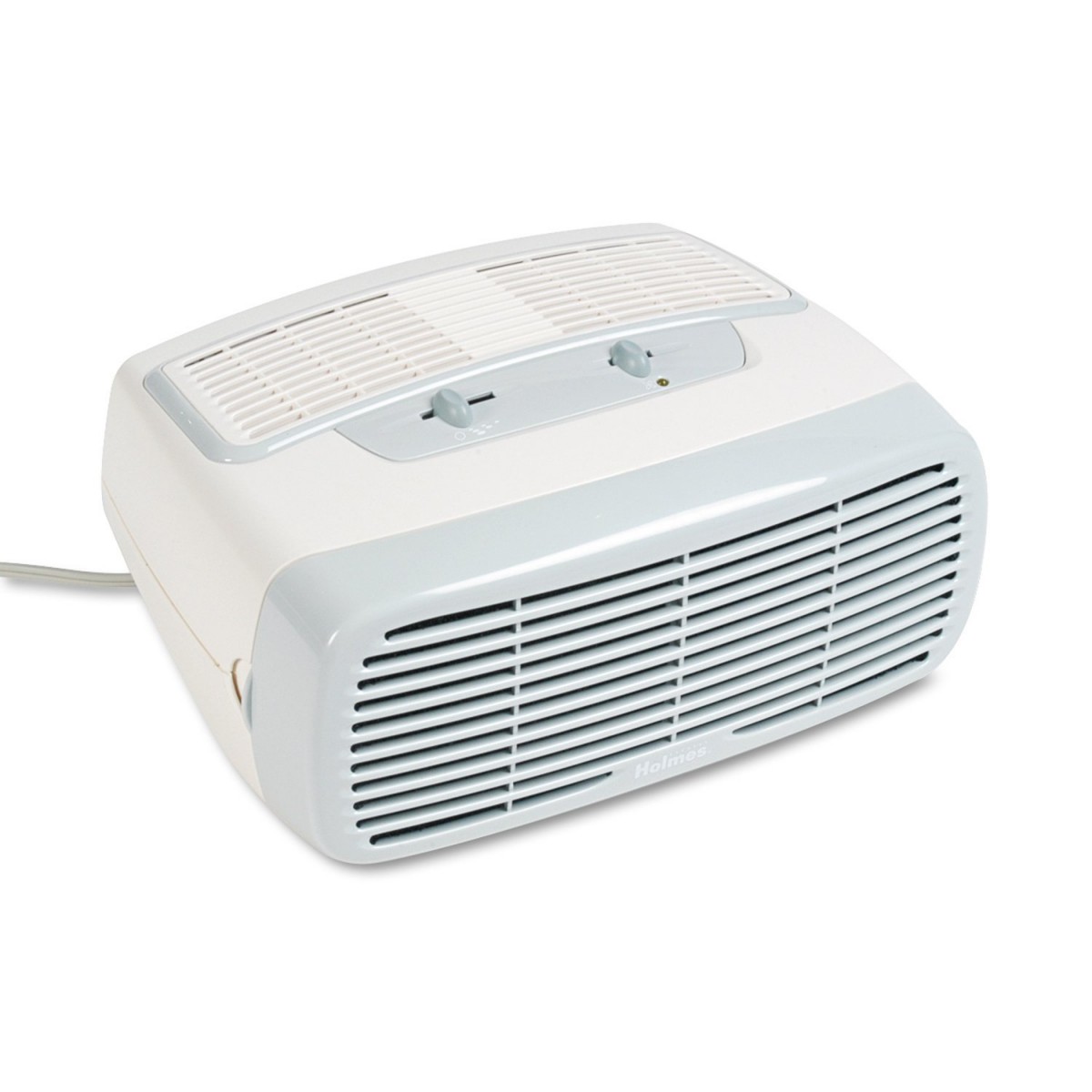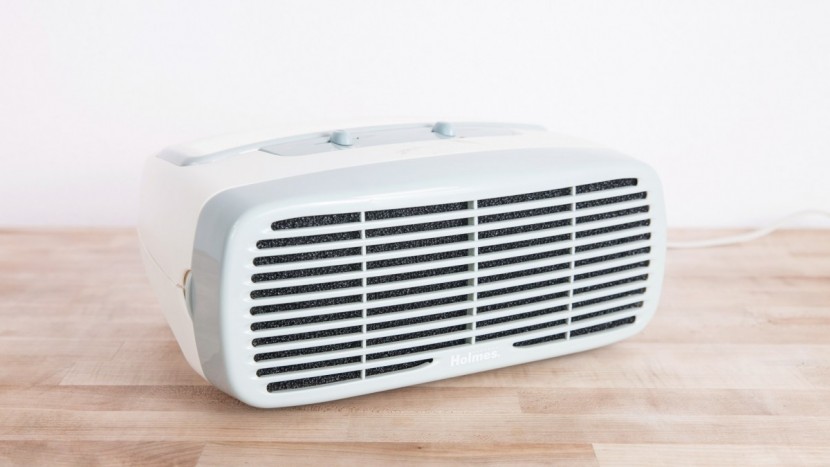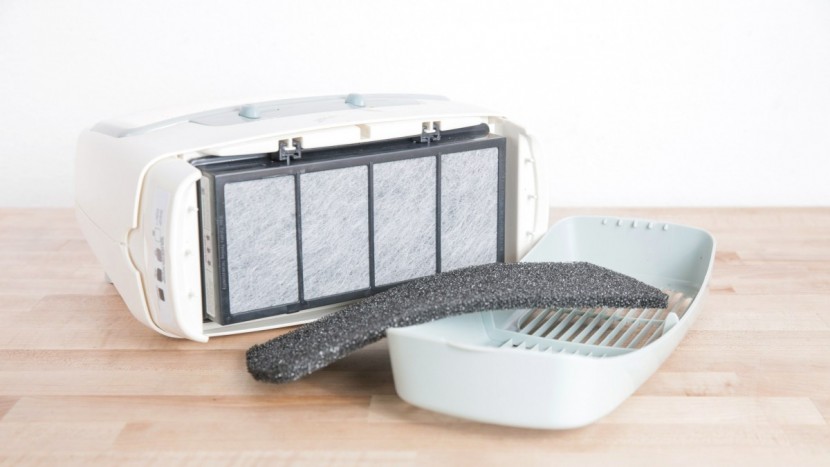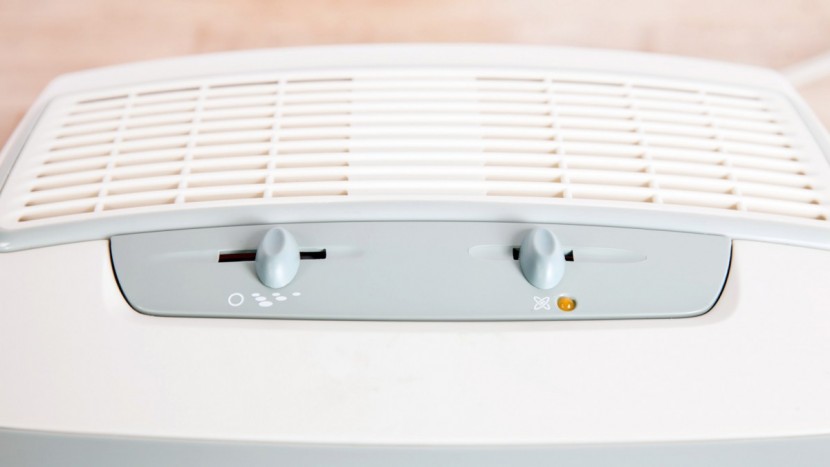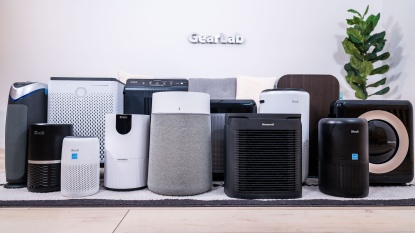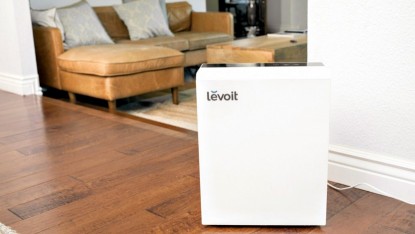Holmes HEPA Type Desktop Review
Our Verdict
Our Analysis and Test Results
The Holmes HEPA Type Desktop is convenient and incredibly affordable, but with its poor performance attributes you're better off spending a bit more for something that works a bit better.
The Holmes HEPA Type Desktop was one of the worst overall scorers in our testing, as you can see in the table above. Our overall scores are based on four weighted, individual testing metrics. Below we detail how the Holmes performed in each of those metrics.
Air Cleaning Performance
The Holmes was one of the worst performers in our air cleaning tests, sharing the bottom score of 3 out of 10 with one other model. It is a compact model, and its small CADR (clean air delivery rate) of 70 is only suitable for rooms of 105 square feet or less (the manufacturer claims 109 square feet, but the general rule of thumb is CADR*1.5). After running for an hour in our smoky testing room it managed to reduce airborne particulates by 89.49%. This may sound impressive, but most models were able to achieve a reduction of over 99%. Even compared to the top performing compact model this is pretty poor. The GermGuardian AC4100, which is of a comparable size, removed more than 95% of particulates in the same time frame. It also did poorly in odor reduction, barely removing any of the smoke smell. To be fair no models performed well in this regard, so that should be taken with a grain of salt.
Noise
Since the Holmes is really only suitable for a small room noise is an important consideration. It was an average scorer in our testing with a 6 out of 10. On high it produces a loud buzzing sound. The pitch of that sound is right on the line between being annoying and being able to blend into the background, so it may keep you up if you're a light sleeper. On medium and low the buzz dissipates and it becomes more of a medium pitched hum that is fairly quiet. At those levels it is more of a white noise that will probably fade from your awareness after a few minutes.
Ease of Use
The Holmes picked up a score of 5 out of 10 in our ease of use testing, putting it just behind the average score of 6. It is quite a simple machine with a sliding switch to select one of three fan speeds and another switch to turn the ionizer on and off. It lost points partially because of the lack of settings options and the fact that it doesn't have an off timer. It also lost points because the controls just feel flimsy and like they wouldn't stand up to constant use. On the plus side it is incredibly light, weighing in at just 4.7 pounds, and is thus very portable.
Operating Cost
Operating cost is one area where the Holmes absolutely excelled. Its estimated lifetime cost of just $143 was by far the lowest such figure that we calculated. With a list price of $40 it costs very little up front, and replacement filters cost only $15 and last for 15 months. Plus, it barely uses any electricity, costing just $5.26 a year to run (assuming you pay average electricity rates).
Value
The Holmes HEPA Type Desktop is incredibly economical costing just $40 up front and an estimated $143 over a five-year lifespan. However, its performance is poor enough that its low cost can't make up for its shortcomings. Therefore we would consider it a fairly poor value. If you're looking for a compact model you'll get much better bang for the buck by spending a bit more on the GermGuardian AC4100.
Conclusion
The Holmes HEPA Type Desktop is a very inexpensive, compact air purifier, but in this case you get what you pay for.


